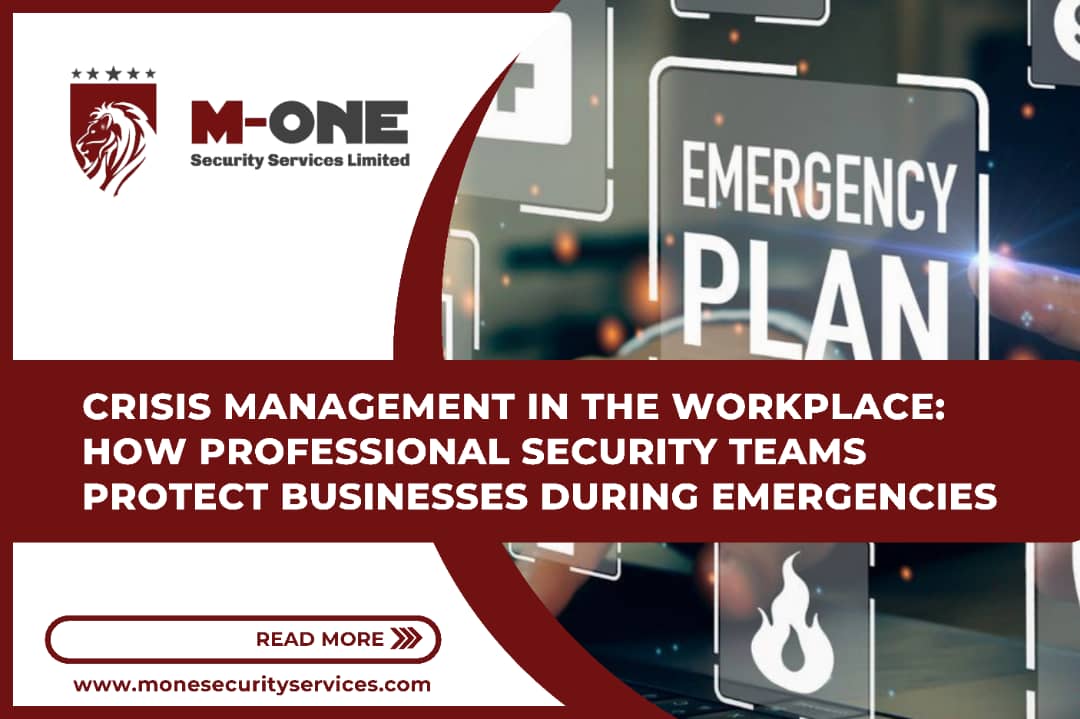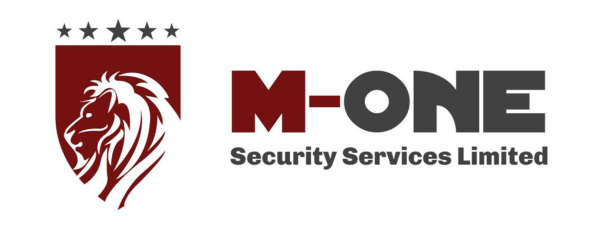Introduction
In Nigeria’s fast paced business environment, crisis management is a lifeline, from armed robberies and protests to cyberattacks and fire outbreaks, emergencies can escalate quickly and devastate a company’s operations, reputation and finances. Unfortunately, many organizations only realize the importance of security planning after a crisis hits.
However, professional security teams bring more than guards at the gate, they provide the expertise, structure and rapid response mechanisms businesses need to survive unexpected disruptions. Here’s how professional security teams protect Nigerian workplaces during emergencies.
1) Early Risk Detection and Prevention:
Professional security isn’t only about reacting, but about anticipating, the trained teams use surveillance, intelligence networks and risk assessments to spot trouble before it spirals. Security teams act as the eyes and ears of a business, monitoring both physical threats like suspicious activity around offices and external risks. For instance, during the #EndSARS protests of 2020, businesses that had proactive security intelligence were able to close early, reroute staff and protect assets before unrest reached their locations. Those without plans suffered looting and millions in damages.
2) Cybersecurity Crisis Response:
Nigerian businesses face rising cyber threats, such as ransomware attacks, phishing scams and insider data theft. Security teams now integrate IT experts to handle digital crises and that is why workplace emergencies are no longer just physical. A comprehensive security strategy in Nigeria must blend physical and digital protections, professional teams increasingly offer both.
3) Staff Training and Emergency Drills:
Training transforms staff into active participants in crisis management, reducing loss of life and property, even the best security plan fails if employees don’t know what to do during a crisis. Professional security teams regularly conduct drills so staff can respond confidently instead of panicking. Some firms hold quarterly fire drills led by private security professionals, so that when a minor electrical fire break out, staff will be evacuated in under three minutes because they had practiced the procedure before.
4) Business Continuity and Recovery Support:
After a crisis, businesses must restore operations quickly to avoid long term setbacks, meanwhile, security teams often play a role in protecting data, securing damaged premises and liaising with law enforcement for investigations. Security doesn’t end when the sirens fade, it continues into recovery, ensuring businesses can bounce back stronger.
5) Rapid On Ground Response:
Businesses can’t rely solely on government response, because internal security teams trained in first aid, crowd control and evacuation drills make the difference between chaos and controlled safety. Emergencies demand seconds, not hours, while, professional teams are trained to move quickly, control panic and establish order while waiting for external responders such as police, fire service and medical teams.
Conclusion
Motherhood will always change the way friendships look, but it doesn’t have to mean losing them, the secret is simple, just by showing up, even in small ways such as a text, quick coffee or a shared laugh in the middle of chaos can sustain relationships across every stage of parenting. Kids will definitely grow and seasons will shift, friendships when nurtured can remain one of the most grounding parts of motherhood.


